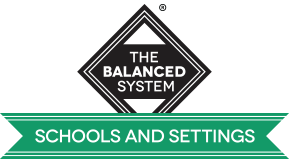SEND - Learning Support
Special Educational Needs
Our Team
Director of Inclusion - Mrs K McBeath
Lower School SENCO - Miss R Hobby
rhobby@thejohnwallisacademy.org
Middle School SENCO - Miss N Wood
nwood@thejohnwallisacademy.orgUpper School SENCO - Mrs S Lewis
slewis@thejohnwallisacademy.org
Our Academy works to support speech, language and communication with support from our NHS link speech & language therapists Louise Bailey and Stephanie Massey, as well as specialist teachers. Your child may come into contact with Louise Bailey or Stephanie Massey within their classroom or around school.
Our SENCO's Mrs Hobby, Miss Wood and Mrs Lewis have regular meetings with our link therapist to discuss our school’s provision.
If you have any concerns about your child’s speech, language or communication skills, please speak to your child’s class teacher in the first instance.
If we have discussed a specific concern with you about your child’s speech, language or communication, or you have raised a concern, we will decide together whether to discuss this with our link therapists. You will be kept informed of any plans to support your child.
Supporting The Balanced System® in Schools
What is SEN/D – Special Educational Need and/or disability?
A child and young person has SEN/D if they have learning difficulty or disability which calls for special educational provision to be made.
A child of compulsory school age or a young person has a learning difficulty or disability if they have significantly greater difficulty in learning than the majority of others of the same age or has a disability which prevents or hinders them from making use of facilities of a kind generally provided for others of the same age in mainstream schools.
Definition of special educational needs (SEN)
A child has SEN if they have a learning difficulty or disability which calls for special educational provision to be made for them. A learning difficulty means that the child has significantly greater difficulty in learning than most children of the same age. (Adapted from - SEND Code of Practice (0-25) 2014)
Definition of disability
A child has a disability if they have a physical or mental impairment, and the impairment has a substantial and long-term adverse effect on their ability to carry out normal day-to-day activities. The disability prevents or hinders the child from making use of educational facilities of a kind generally provided for other of the same age. (Adapted from - SEND Code of Practice (0-25) 2014)
Four Broad Areas
The SEND Code of Practice 2014 outlines four broad areas of SEN need, which are:
- Communication and Interaction – Speech, language and communication needs (SLCN), Specific Learning Difficulties (SpLD), Autistic Spectrum Condition (ASC)
- Cognition and Learning – Moderate learning difficulties (MLD), Severe Learning Difficulties (SLD), Profound and Multiple Learning Difficulties (PMLD), Specific Learning difficulties (SpLD) such as Dyslexia, Dyscalculia
- Social, Emotional and Mental Health difficulties – Attention Deficit Disorder (ADD), Attention Deficit Hyperactivity Disorder (ADHD), Obsessive Compulsive Disorder (OCD)
- Sensory and/or Physical needs – Visual Impaired (VI), Hearing Impaired (HI), Multi-sensory impaired (MSI), Physical disability (PD)
Local Offer
Kent SEND Local Offer:
https://www.kent.gov.uk/education-and-children/special-educational-needs
Easy Read Guide from IASK explaining the local offer
SEND information on the Local Offer:
https://www.kelsi.org.uk/special-education-needs/special-educational-needs
Most Common SEND Needs
Dyslexia
Dyslexia is a common learning difficulty that can cause problems with reading, writing and spelling. If you are concerned that your child may have traits of dyslexia, some helpful information and websites are listed below.
https://www.nhs.uk/conditions/dyslexia/
http://www.ashforddyslexiacentre.org/index.htm
Autistic Spectrum Condition (ASC)
Autistic people may:
- Find it hard to communicate and interact with other people
- Find it hard to understand how other people think or feel
- Find things like bright lights or loud noises overwhelming, stressful or uncomfortable
- Get anxious or upset about unfamiliar situations and social events
- Take longer to understand information
- Do or think the same things over and over.
Autism is a spectrum. This means everybody with autism is different. Some autistic people need little or no support. Others may need help from a parent or carer every day. If you are concerned that your child may have traits of autism, some helpful information and websites are listed below.
https://www.nhs.uk/conditions/autism
https://www.kentautistictrust.org/
Attention Deficit Hyperactivity Disorder (ADHD)
Attention deficit hyperactivity disorder (ADHD) is a condition that affects people's behaviour. People with ADHD can seem restless, may have trouble concentrating and may act on impulse. If you are concerned that your child may have traits of ADHD, some helpful information and websites are listed below.
https://www.nhs.uk/conditions/attention-deficit-hyperactivity-disorder-adhd/
https://www.adhdfoundation.org.uk/
Dyscalculia
Dyscalculia is a learning disability in math. People with dyscalculia have trouble with math at many levels. They often struggle with key concepts like bigger vs smallest. If you are concerned that your child may have traits of Dyscalculia, some helpful information and websites are listed below.
https://www.dyscalculia.org/home
Developmental coordination disorder (DCD) (Dyspraxia)
Developmental coordination disorder (DCD), also known as dyspraxia, is a condition affecting physical coordination. It causes a child to perform less well than expected in daily activities for their age, and appear to move clumsily. If you are concerned that your child may have traits of Dyspraxia, some helpful information and websites are listed below.
https://www.nhs.uk/conditions/developmental-coordination-disorder-dyspraxia/
Speech and Language Difficulties
Problems with speech and language are the most common developmental difficulties that children encounter. Studies indicate that as many as 1 in 10 children in the UK have speech and language difficulties, and these are particularly prevalent in the early years. If you are concerned that your child may have traits of speech and language difficulties, some helpful information can be found on the link below.
https://www.kentcht.nhs.uk/childrens-therapies-the-pod/speech-and-language-therapy/
Sensory Processing difficulties
Sensory processing is the way that our brain sorts out sensory information so we understand the world and can manage our everyday life.For some children their sensory development is delayed or disordered, and they struggle to take part in everyday childhood occupations. For example, they are so distressed by noise they can’t go to a friend’s party or they hit out when someone brushes up against them as they experience it as painful. If you are concerned that your child may have traits of sensory processing difficulties, some helpful information and websites are listed below.
https://www.kentcht.nhs.uk/childrens-therapies-the-pod/occupational-therapy/sensory-processing/
Other useful websites
Community Child Health
Their community child health service assesses and manages children with a variety of developmental problems and neurodisability. Their team include clinical psychologists, clinical nurse specialists and therapists.
They also work with other agencies to provide initial health assessments (IHAs) for Looked after Children, medical assessments for Education, Health and Care plans (EHCPs), adoption medicals and safeguarding medicals for children with suspected child abuse.
https://www.ekhuft.nhs.uk/services/community-child-health/The Pod – Children’s Therapies
NHS Children's therapies information with films, resources and links that can help your child achieve their therapy goals. The Pod has been developed by the Integrated Children’s Therapies teams, provided by Kent Community Health NHS Foundation Trust. Unfortunately they do not cover our area, however the link below has some fantastic information available:
https://www.kentcht.nhs.uk/childrens-therapies-the-pod/
Oaks National Academy
Specialist classroom for students with additional needs, offering a range of specialist subjects.
https://classroom.thenational.academy/specialist
Special Needs Jungle
Parent-led information and resources

